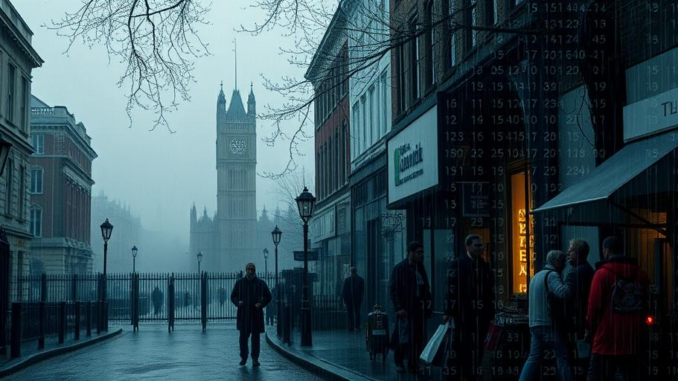
Summary
A ransomware attack on NRS Healthcare, a medical equipment supplier, has left several UK councils warning residents about potential data breaches. This incident highlights the increasing vulnerability of the healthcare supply chain to cyberattacks and the need for robust security measures. The attack disrupted services and potentially compromised personal data, underscoring the wider cybersecurity challenges facing the healthcare sector.
Main Story
It’s hard to overstate the gravity of the situation right now: UK councils are really in the thick of it, trying to manage the fallout from a recent ransomware attack on NRS Healthcare, a major medical equipment supplier. Think about that for a moment. This isn’t some abstract, theoretical threat – it’s impacting real people and their sensitive medical information. The attack, which happened in early April 2024, forced NRS Healthcare to shut down its website and phone lines. Can you imagine the chaos that caused? It wasn’t just an inconvenience; it really did disrupt services. It also opened up a huge can of worms about how secure our patient data actually is.
Several councils, including East Lothian, Waltham Forest, Camden, and Buckinghamshire, have had to warn residents about a potential data breach. Some are still trying to figure out just how bad the damage is. However, Buckinghamshire Council has already confirmed that personal data was compromised during the attack. This revelation has understandably ratcheted up anxiety levels, I mean, who wouldn’t be worried? And it raises some very serious questions about potential misuse of this incredibly sensitive information.
This attack on NRS Healthcare, it’s just the latest example in a disturbing trend. The healthcare sector has become a major target for cybercriminals because, let’s face it, they’re sitting on a goldmine of valuable medical data. The interconnected nature of the healthcare supply chain also means that if there’s a weak point, for example, a supplier with weak cybersecurity, it can expose a massive network of organizations and people. Consequently, healthcare providers need to prioritize cybersecurity across their entire network, not just within their own systems.
The fallout from this goes beyond just the service disruptions; I mean the data breach itself can have far-reaching consequences. Think about identity theft, financial fraud, and the real erosion of public trust in healthcare. And as a result, councils are now urging residents to be super vigilant against social engineering attacks like phishing emails, and also suspicious phone calls. They’re also giving residents the same good advice, you know, change passwords regularly and be careful about clicking on links or opening attachments from senders you don’t recognise.
Look, ransomware attacks in the healthcare sector have increased dramatically in recent years. Some reports suggest a 300% rise since 2015. In fact, there has been an increase in stroke and cardiac arrest cases at hospitals struggling to cope with patient overflows from affected facilities. That’s a really alarming trend and it underscores just how life-threatening cyberattacks on healthcare can be, requiring a coordinated response, as a result.
The attack on NRS Healthcare comes at a time when the healthcare industry is already facing immense pressure. You know, rising costs, staff shortages, and increasing patient demand. And, the added burden of dealing with cybersecurity incidents further strains resources. Consequently, it takes the focus away from critical patient care. That said, the incident highlights the need for greater investment in cybersecurity infrastructure. Not to mention, more training for healthcare professionals. Plus, there’s the whole issue of collaboration between the public and private sectors, so that we can all strengthen our defenses against cyber threats. After all, as cyberattacks become more sophisticated and frequent, the healthcare sector needs to adopt a proactive approach to cybersecurity, rather than just waiting to react. So, to wrap up, the incident serves as a reminder of the ever-present threat of cyberattacks and the need for robust cybersecurity measures. And to reiterate, the interconnected nature of modern systems means that no organization is immune. Therefore, it is imperative for all organizations to prioritize cybersecurity, and invest in the necessary resources to protect themselves.


So, Buckinghamshire *confirmed* data was compromised? I’m shocked, shocked to find that gambling is going on in here! Next thing you know, they’ll be asking us to use different passwords.
It is definitely concerning that Buckinghamshire confirmed the data breach. I think that’s why it’s so important for organizations to be transparent and proactive about informing individuals when their data might be at risk, and what steps they can take to protect themselves. What are your thoughts on how organizations can be more transparent with their users?
Editor: MedTechNews.Uk
Thank you to our Sponsor Esdebe
“East Lothian, Waltham Forest, Camden, and Buckinghamshire all walk into a bar… Actually, scratch that, they’re probably all on hold with IT trying to figure out who clicked the phishing link. Maybe a group therapy session instead?”
That’s a funny take on a serious situation! A group therapy session might actually be a great idea, not just for the councils, but for raising awareness among employees about the dangers of phishing. Could proactive training become a new form of organizational therapy?
Editor: MedTechNews.Uk
Thank you to our Sponsor Esdebe